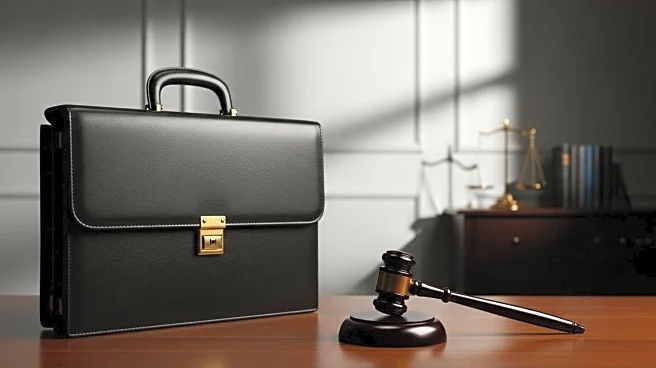What's Happening?
Paul La Schiazza, a former AT&T executive, has entered into a deferred prosecution agreement with federal prosecutors, avoiding a felony conviction in a bribery case involving former Illinois House Speaker Michael Madigan. La Schiazza admitted to directing his subordinates to hire former state Rep. Edward Acevedo to influence Madigan and prevent opposition to a bill ending mandated landline service in Illinois. As part of the agreement, La Schiazza will pay a $200,000 fine, and the indictment against him will be dismissed in one year. This agreement follows a jury deadlock on all charges against La Schiazza last year, and it comes as Madigan begins serving a 7 ½-year sentence for other corruption charges.
Why It's Important?
The deferred prosecution agreement highlights the complexities of legal lobbying and the challenges in prosecuting bribery cases, especially following the Supreme Court's decision requiring an advance agreement for bribery charges. The case underscores the ongoing scrutiny of political corruption in Illinois, with significant implications for public trust in government institutions. The agreement allows La Schiazza to avoid a retrial, which could have further exposed the intricacies of political influence and lobbying practices. The outcome may influence future cases involving similar charges and the interpretation of bribery statutes.
What's Next?
With the deferred prosecution agreement in place, La Schiazza will need to fulfill his obligations, including the payment of the fine, to have the indictment dismissed. The case may prompt discussions among legal experts and policymakers about the effectiveness of current bribery laws and the need for reforms. Additionally, the political landscape in Illinois may continue to evolve as stakeholders assess the impact of corruption cases on legislative processes and public policy.
Beyond the Headlines
The case raises ethical questions about the boundaries between legal lobbying and bribery, particularly in the context of political influence. It may lead to increased scrutiny of lobbying practices and calls for greater transparency in political dealings. The agreement also reflects the judicial system's approach to handling complex corruption cases, balancing accountability with practical considerations in prosecution.









